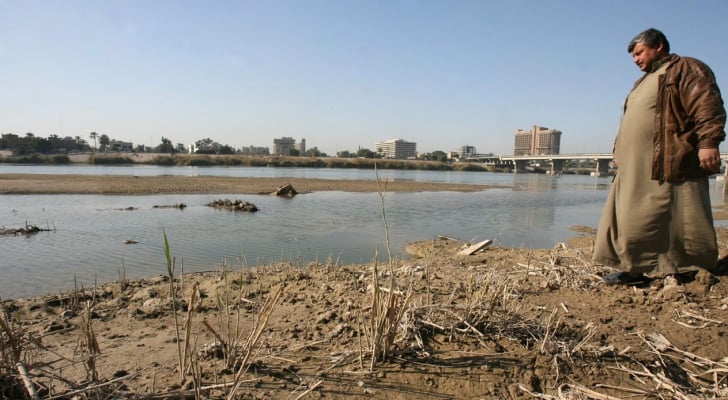Civilians in northeastern Syria have expressed their fears about the high level of pollution in the Euphrates River, due to the low water level in it, amid warnings of the consequences of this on agriculture and groundwater reserves in the region.
The New Arab website quoted the head of the Environment Office in Raqqa, Muhammad al-Haram, as saying that the decrease in the level of the Euphrates River led to an increase in sewage water and salty agricultural drains, which caused the emergence of swamps in the areas where these drains poured into the river.
Al-Haram pointed out that the decrease in the water level also caused a decline in the area of agricultural lands, which contributed to the high costs of water delivery, drilling wells, random depletion of groundwater, and a decrease in the level of surface and groundwater wells.
And the site quoted a resident of the city of Raqqa that the main source of drinking water for the population is the Euphrates River, indicating that the pollution of this water is a direct threat to the lives of the residents and the areas that depend on its water.
He pointed out that the river turns during the drought into ponds with an unbearable smell, “and its water is not as fresh and pure as in the past,” calling for dealing with this disaster with consideration.



















